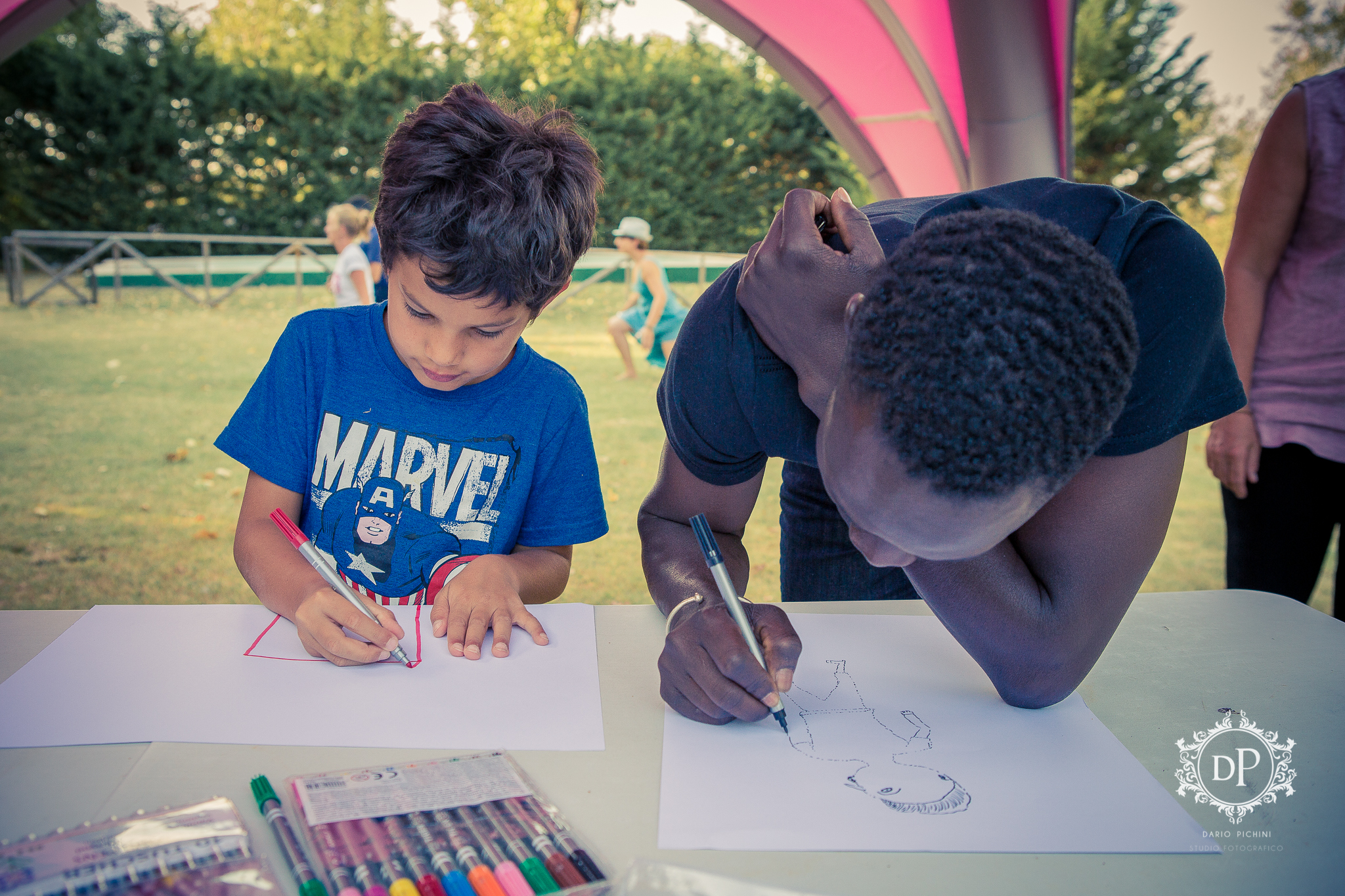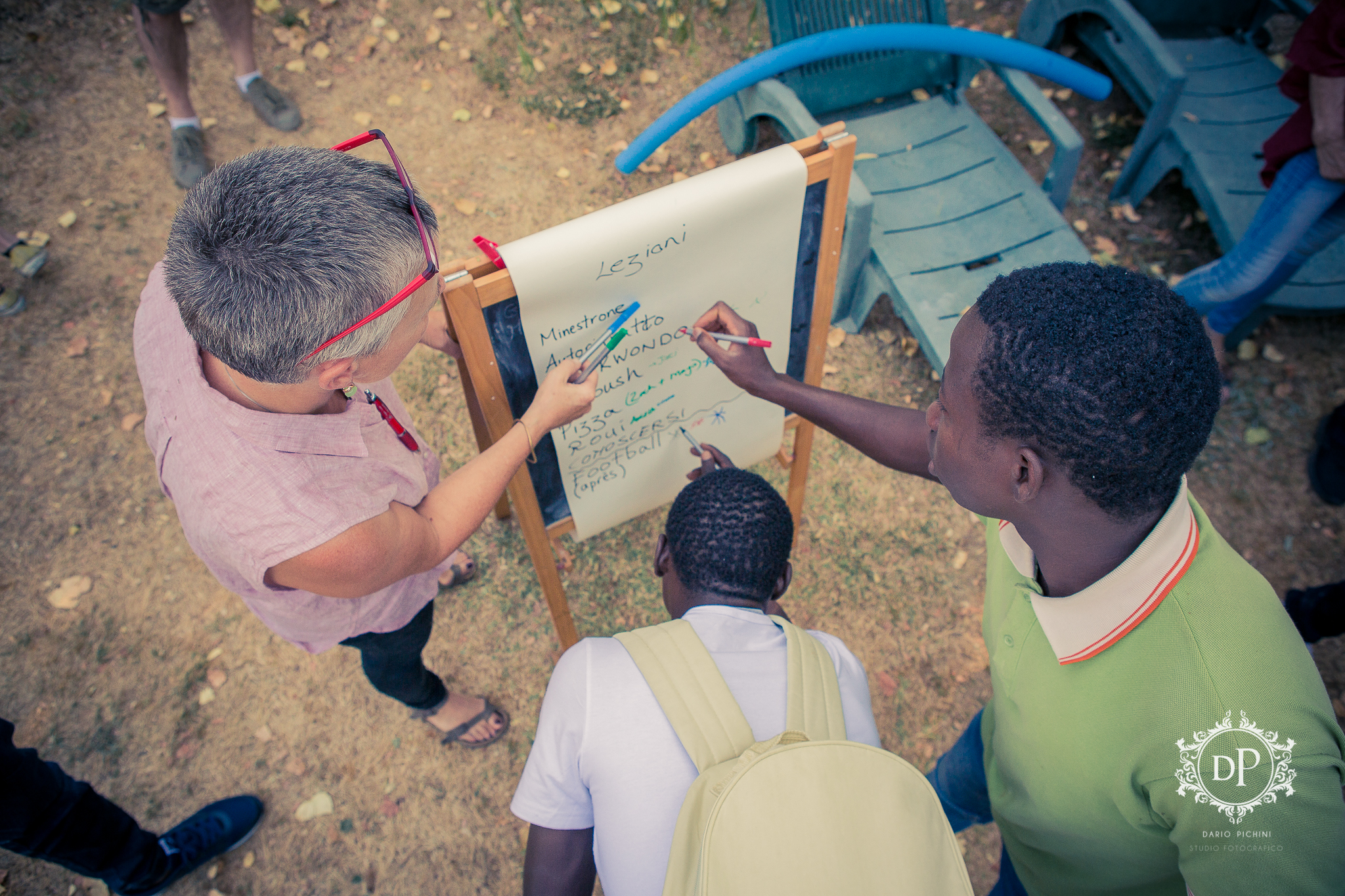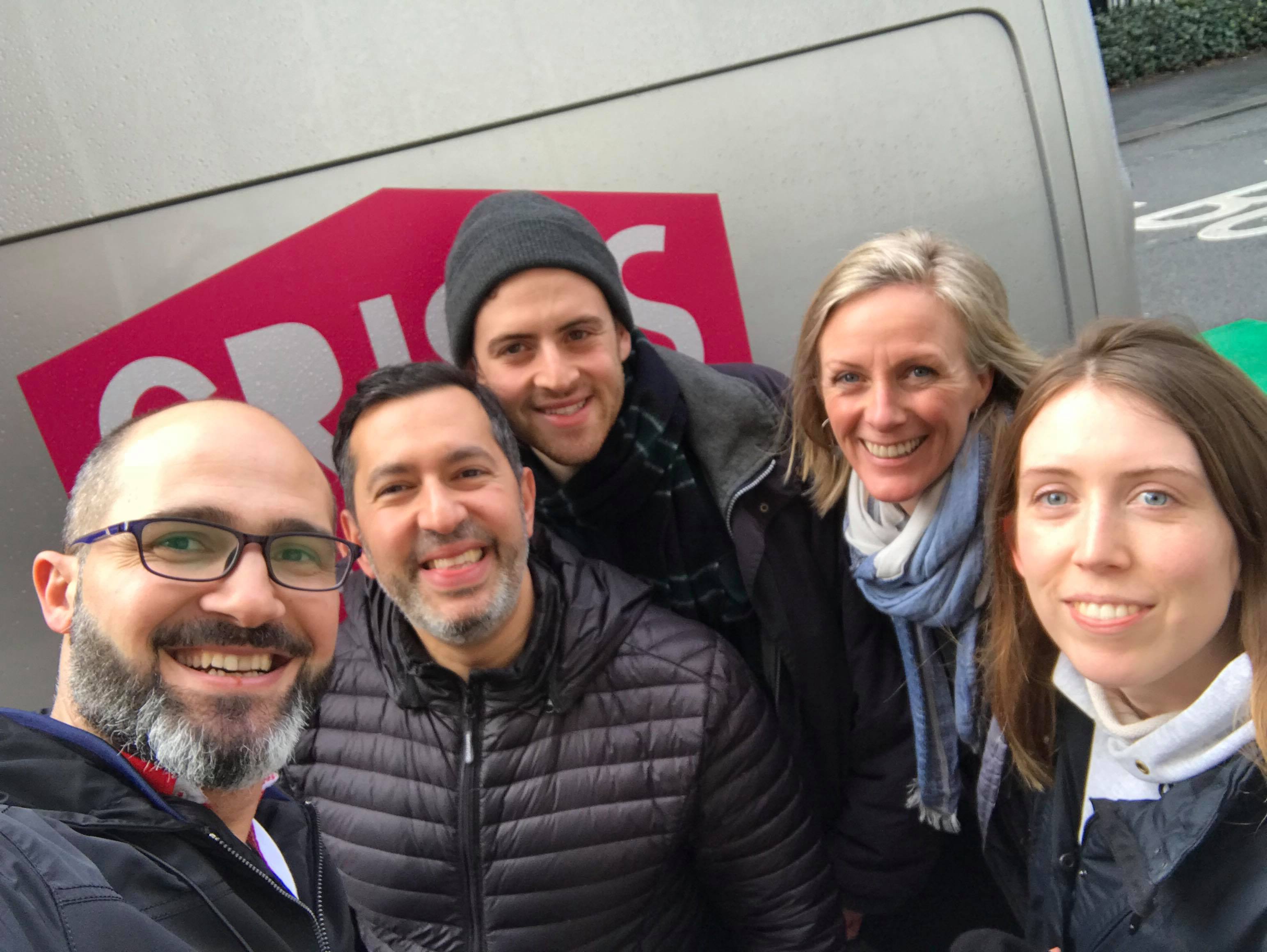Darren Abrahams shares his journey to co-founding Crisis Classroom - a refugee education social enterprise and RSA Catalyst Scaling Grant recipient - and invites you to join along for the ride as the team hit the road, sending trained educators around Europe this spring.
In September 2015 I met my now business partner Kate McAllister for the first time in a cafe in Brighton. I had returned home from a summer as a mentor on a youth cultural programme to be greeted by daily images on the news of desperate people arriving in Europe after fleeing conflicts in the Middle East and Africa. Not 50 miles away on the French coast at Calais a sprawling shanty town had grown, housing more than 6000 people in limbo. It felt like a turning point in my life. My own Grandfather had been a refugee from Nazi Germany so I knew this was not something I could comfortably ignore.
Like many people I turned to social media to identify a way to help and there was Kate’s freshly published crowdfunder, campaigning to raise £5000 to create a mobile school for Calais out of a yellow double decker bus. I had found my project. By the time the camp closed a year later, we had developed a unique methodology for bringing education to displaced people, formed a charity, converted the bus, raised over £45,000 through crowdfunding and trained 60 volunteer teachers, most of whom regularly shared their skills in camp. We could have stopped there.

How do ideas evolve? I believe that many of the problems we are encountering in the world today are caused by people not listening. Whether in politics, business or the third sector, decisions are regularly made about how things should be done without consulting the people that these decisions are made on behalf of. Nowhere is this more evident than in education, where ideologically motivated governments have created systems that serve their own agendas, rather than responding to the actual needs of young people. From the beginning we knew we wanted to do things differently. Kate and I have both worked in schools as educators for over 20 years and have had some success designing self-managed learning programmes that significantly shifted outcomes for students from challenging backgrounds. Formal education as it is currently practised is not designed to work for people who are dealing with the emotional fall out of difficult lives. Rigid, outcome oriented systems do not have enough flex in them to respond to the daily crises of chaotic homes and can perpetuate feelings of disempowerment that trigger the basic human defence mechanisms of Fight, Flight, Freeze and Faint - Aggression, Avoidance, Shame and Collapse.
The refugee experience is no different, but exacerbated by cultural difference, linguistic challenges and trauma - a cocktail of issues that present significant barriers to learning. Kate and I knew that if we wanted to be successful we had to design something that would be responsive to everyday needs whilst delivering a quality learning experience. This is how we came up with the idea of Zero Waste Education, a system that empowers learners and educators to co-construct experiences together based on evolving need. The formal education system is like a ladder - there are set starting points which demand specific pre-requisites for entry. Once in the system new pieces of information are introduced rung by rung leading to a pre-decided outcome. If you miss a step due to unforeseen circumstances, you have a gap in your knowledge which you have to fill while everyone else continues climbing. Zero Waste Education is more like a patchwork - each experience is complete in itself and learners get to choose which piece they bolt on next. The focus is on the process, not the outcome with an emphasis on safety. If people don’t feel safe, the learning centres of the brain close down. Each piece of the patchwork needs to build more trust so that capacity for learning can grow. In this way wonderfully unexpected outcomes appear as if from nowhere.

It was as the Calais camp closed that we realised the first piece of our own patchwork was complete. The need had changed and we had to change with it. To be truly responsive we had to let go of the construction we had built and adapt to a new environment. We believe we have a system that can help people everywhere, but we don’t yet know that for sure until we ask. So we’ve been crowdfunding again, this time to send a small team of our trained educators off around Europe in a van, from Brighton to the Balkans, carrying our pop-up classroom, some foundation lessons and a series of questions for those they encounter - “What do you have now? What’s missing? How could it be different?” We’ll let you know what we discover and adapt accordingly. Or better yet - reach out and come on the journey with us! To find out how, visit www.chuffed.org/project/crisis-classroom.

Darren Abrahams is the Co-Founder of Crisis Classroom. You can find out more about Crisis Classroom at www.crisisclassroom.com.
Crisis Classroom received an RSA Catalyst Award Scaling Grant in September 2017.
You can read about past Catalyst projects, where our Fellows share their learning and how they used the funds.
Want to hear more about the RSA Catalyst Awards? Get in touch with our Catalyst Team.
You can also find the other ways the RSA supports Fellow-led projects on the Project Support page.
Which 21st century women will you nominate to become a Fellow? Get in touch with our Fellowship Development team to help us recruit more women.

Be the first to write a comment
Comments
Please login to post a comment or reply
Don't have an account? Click here to register.